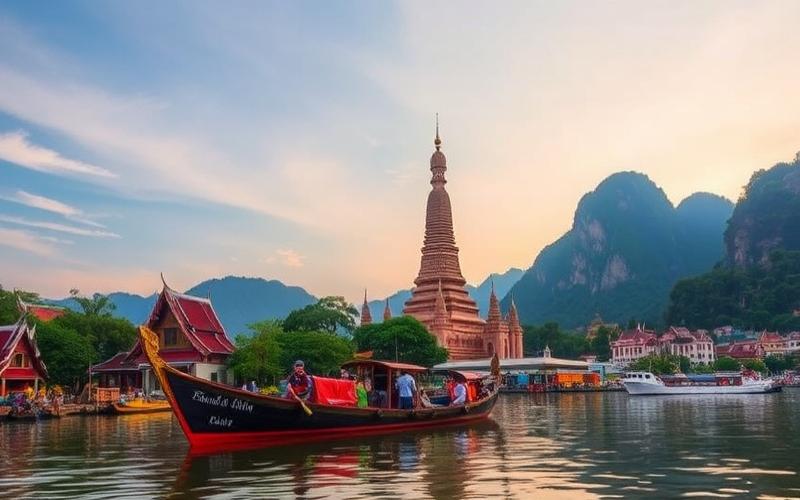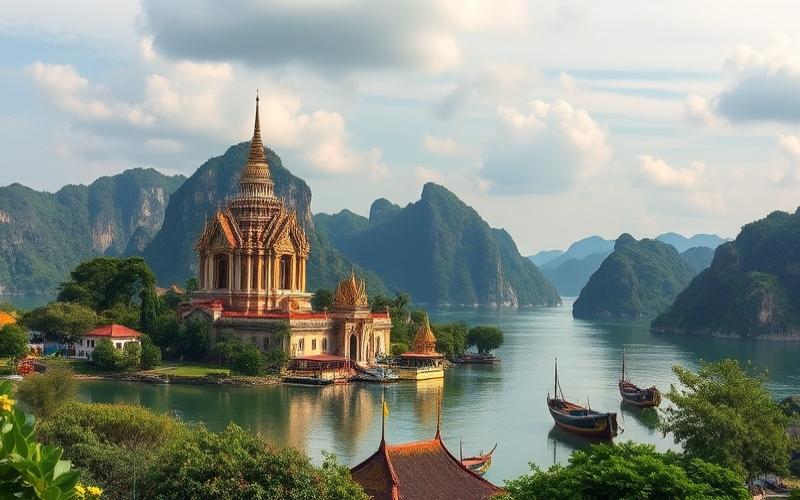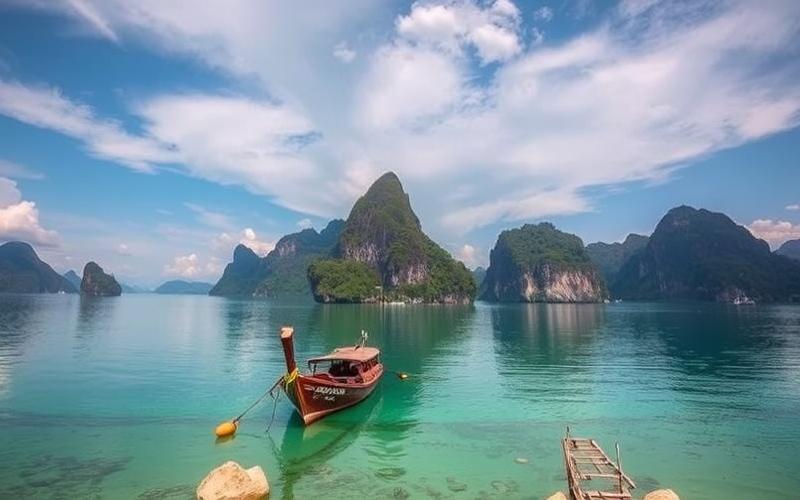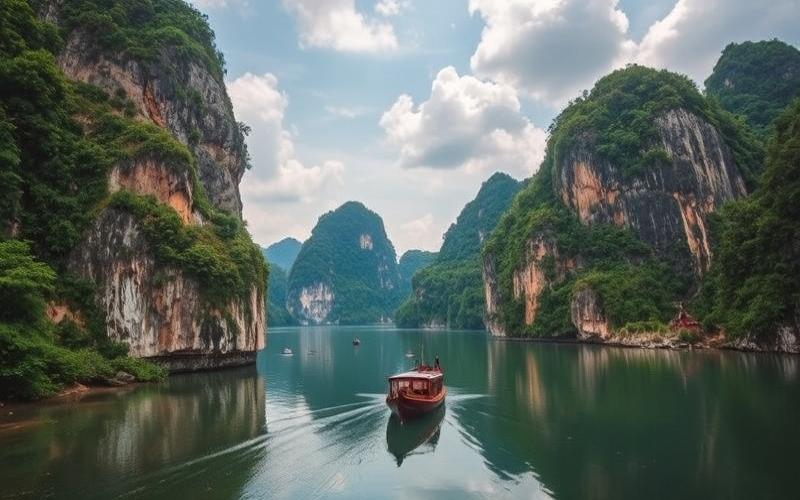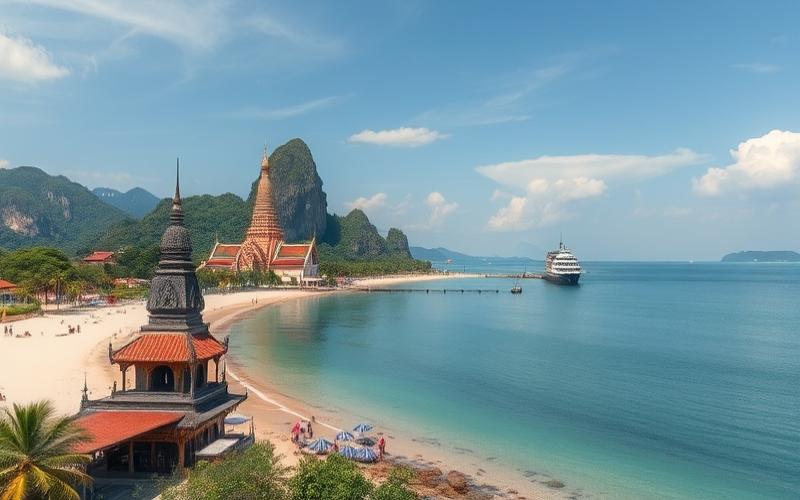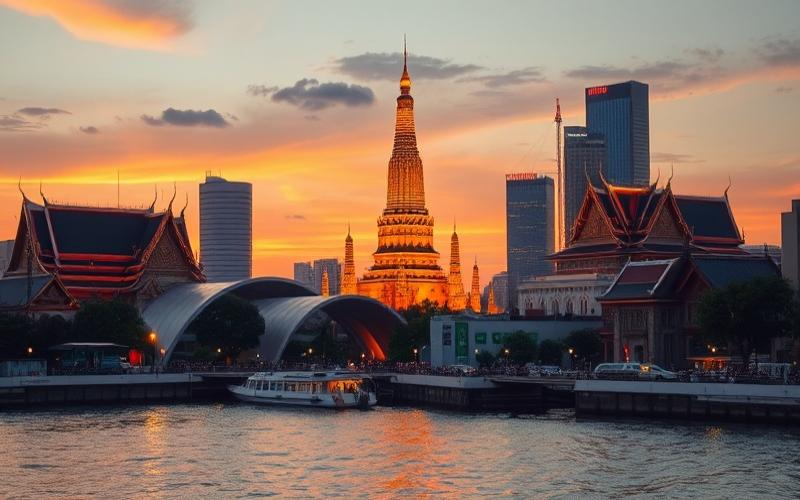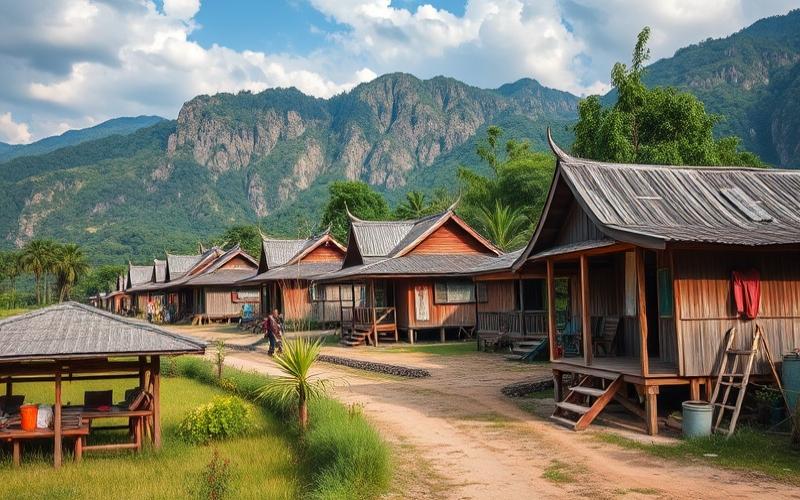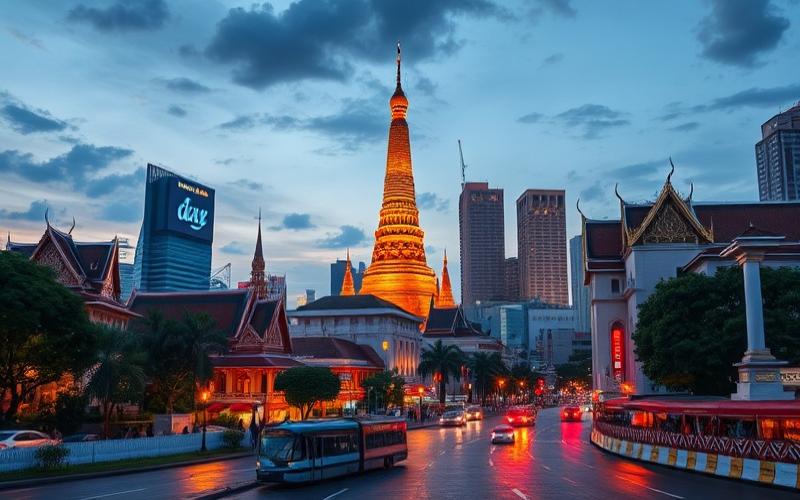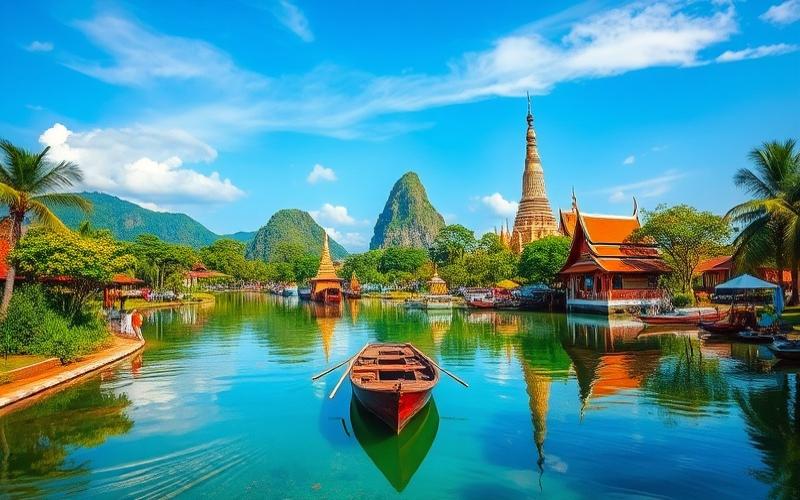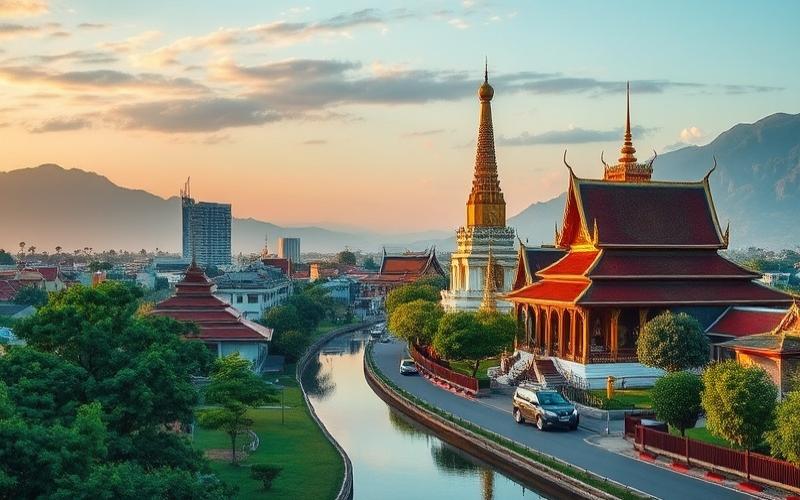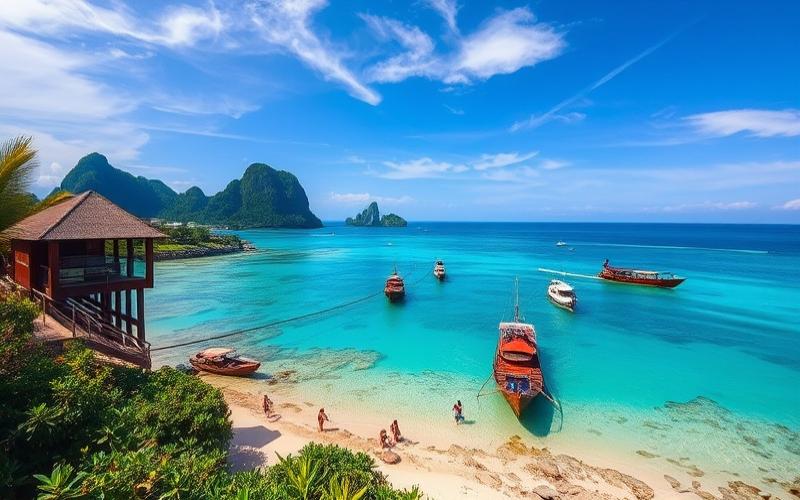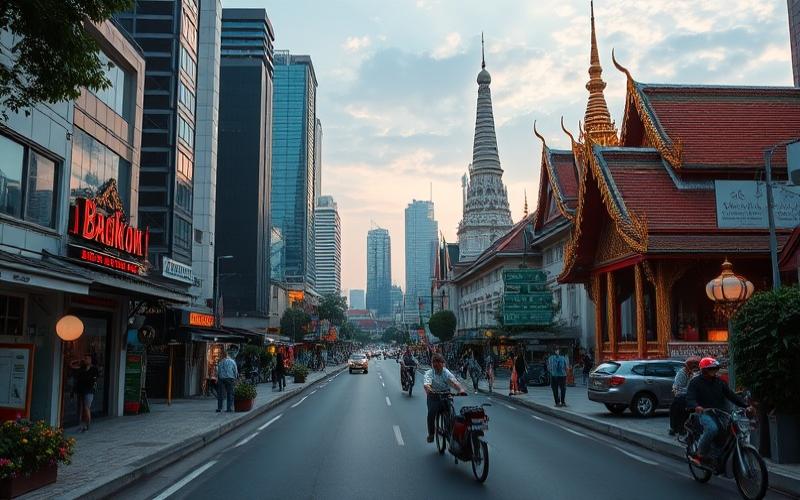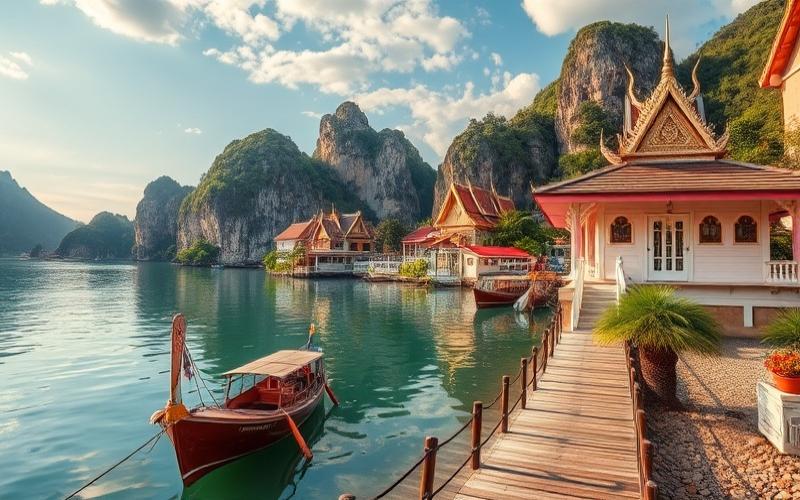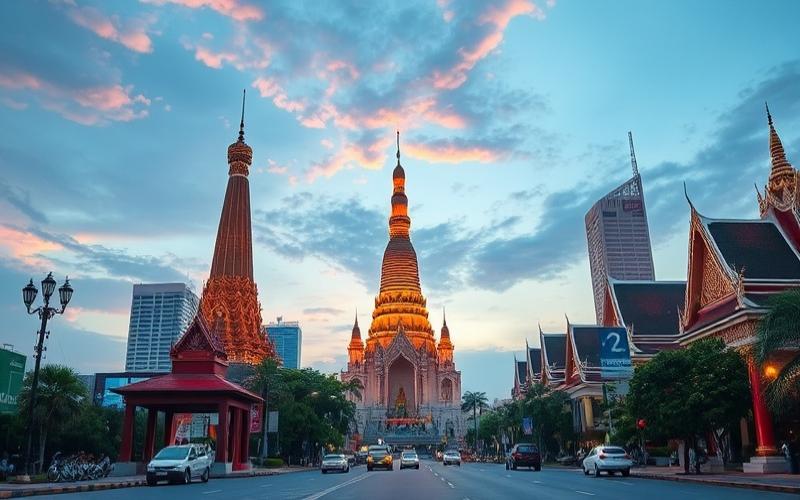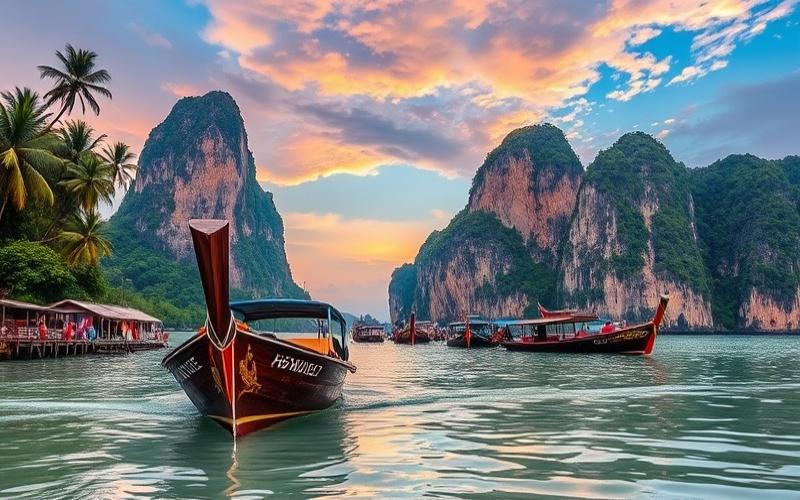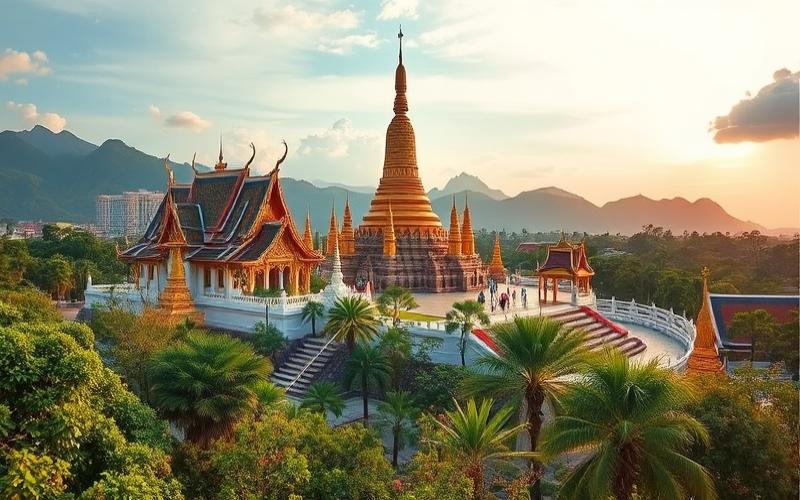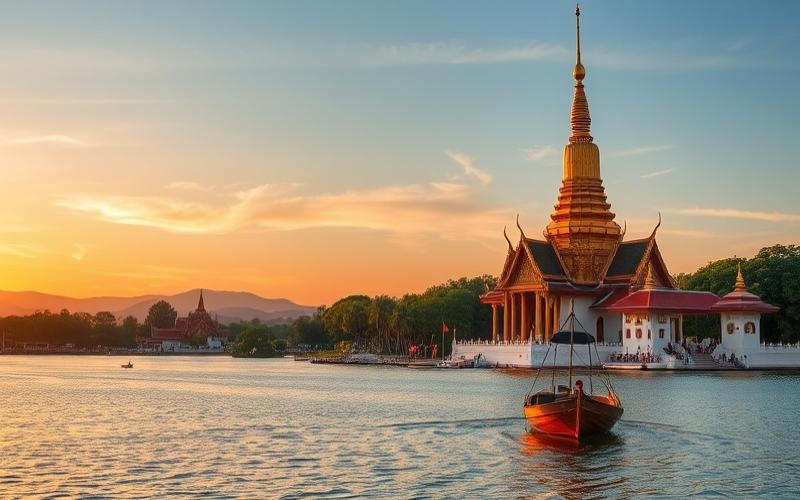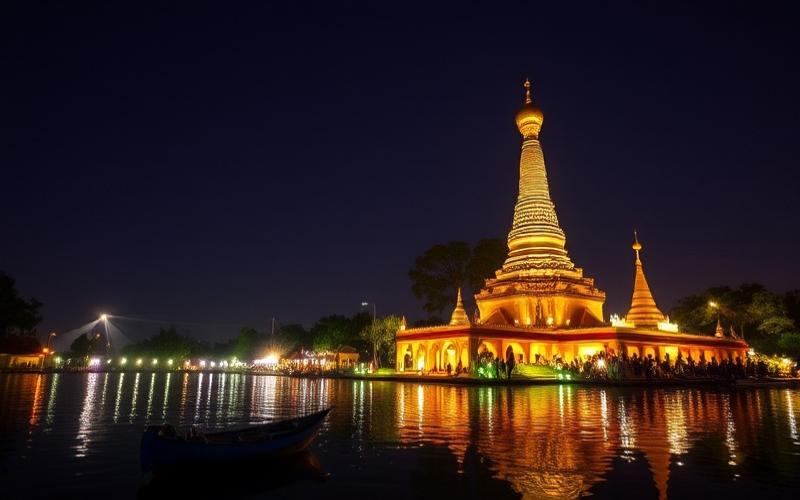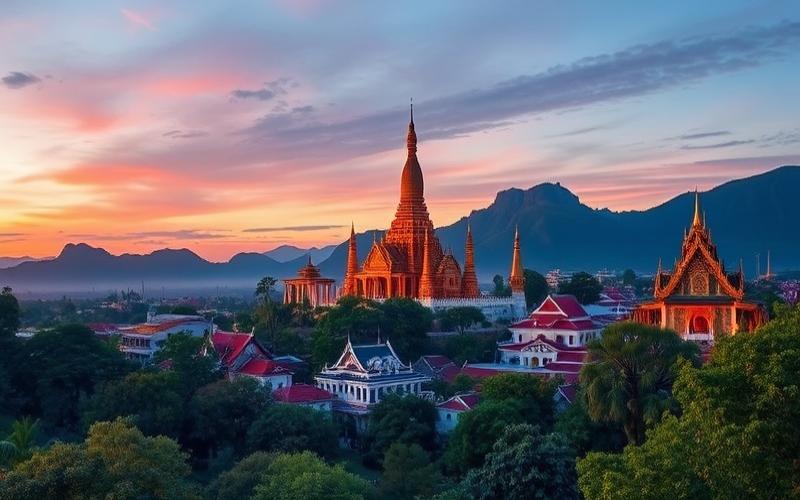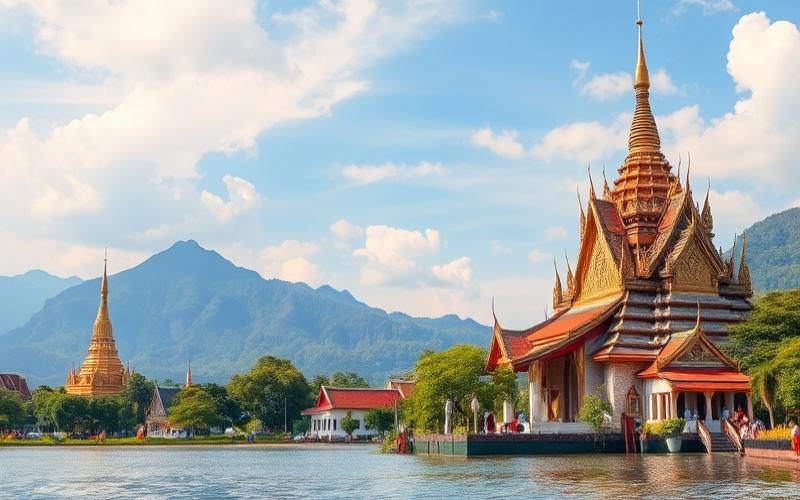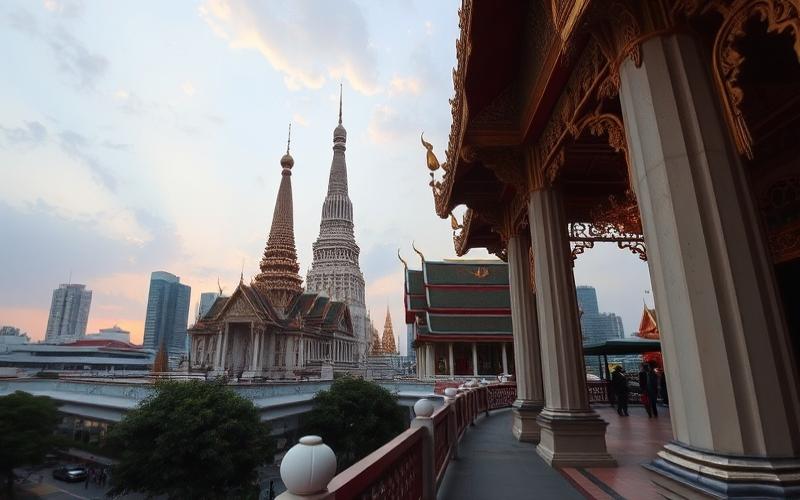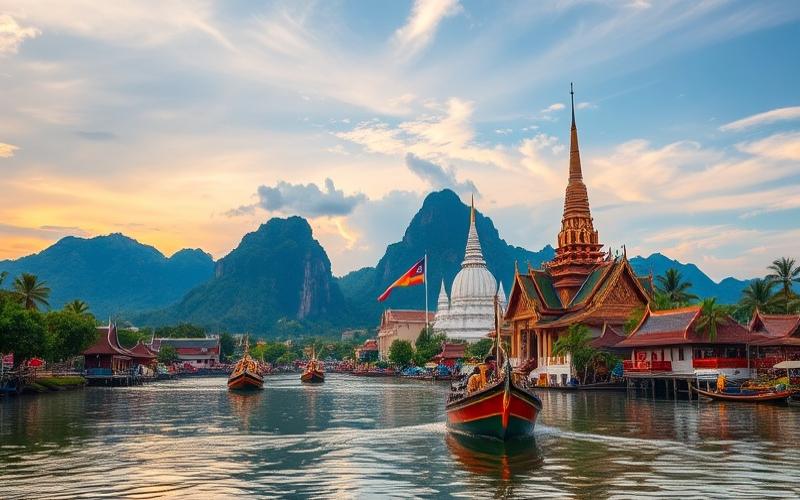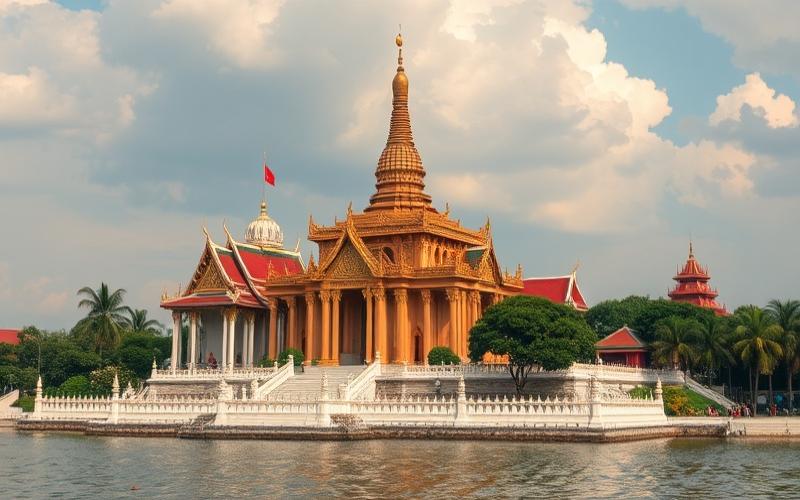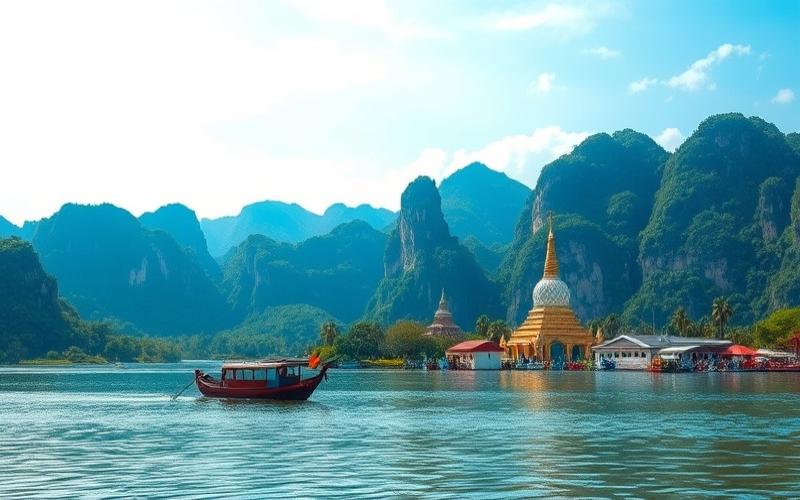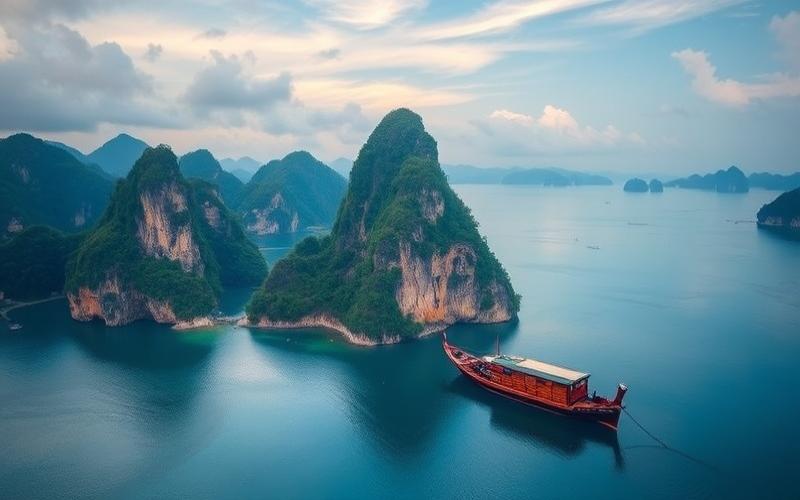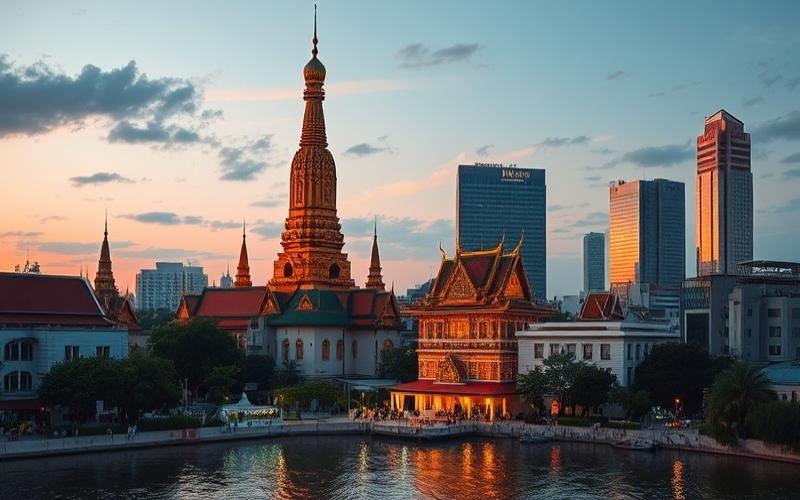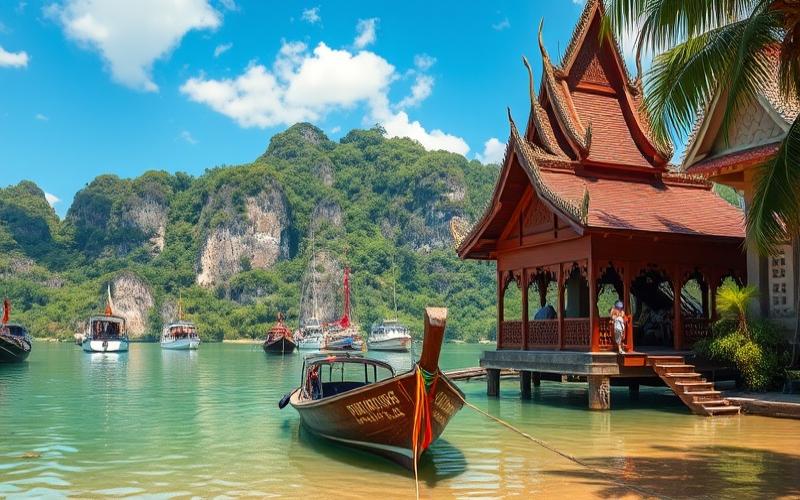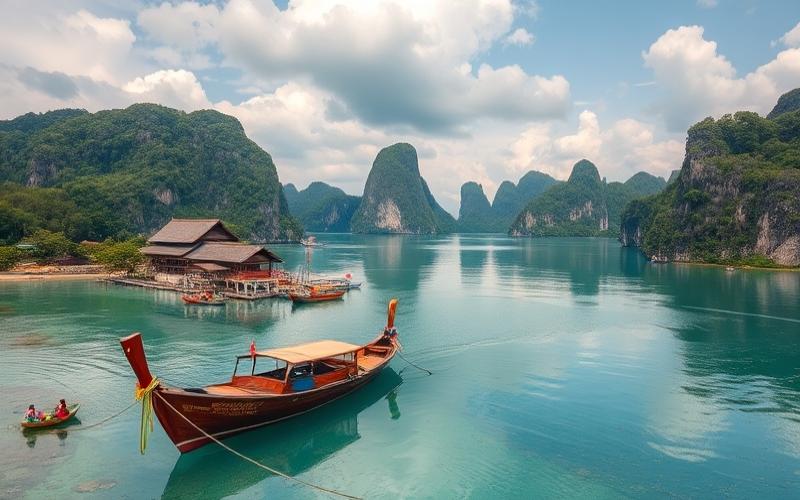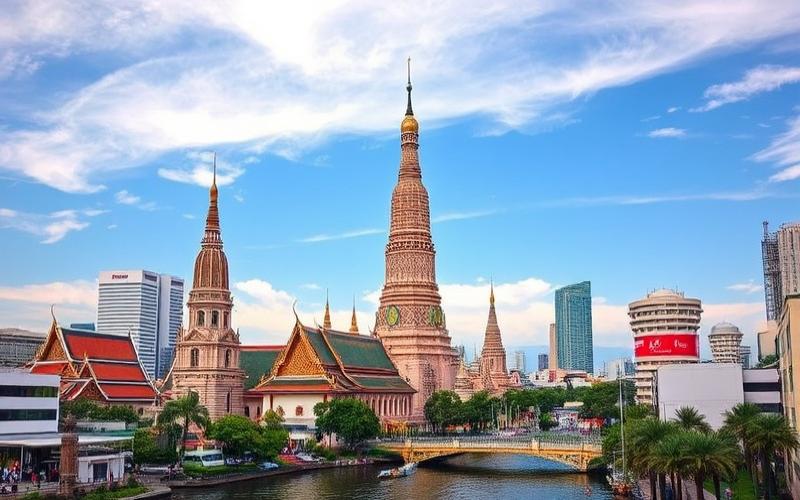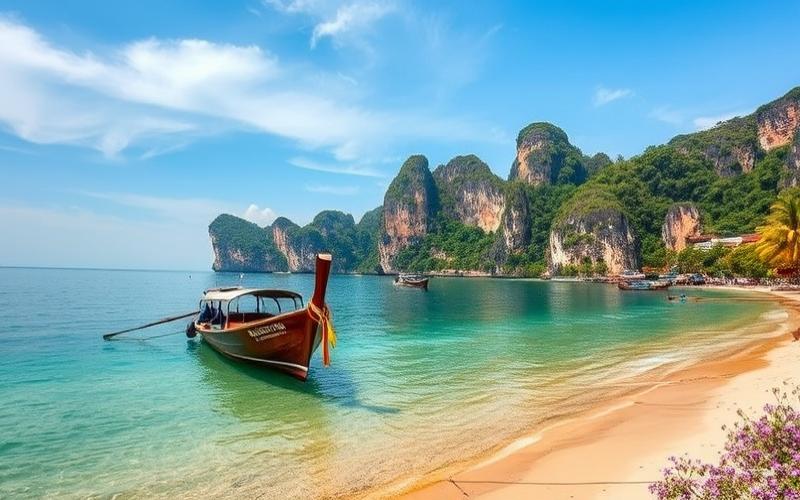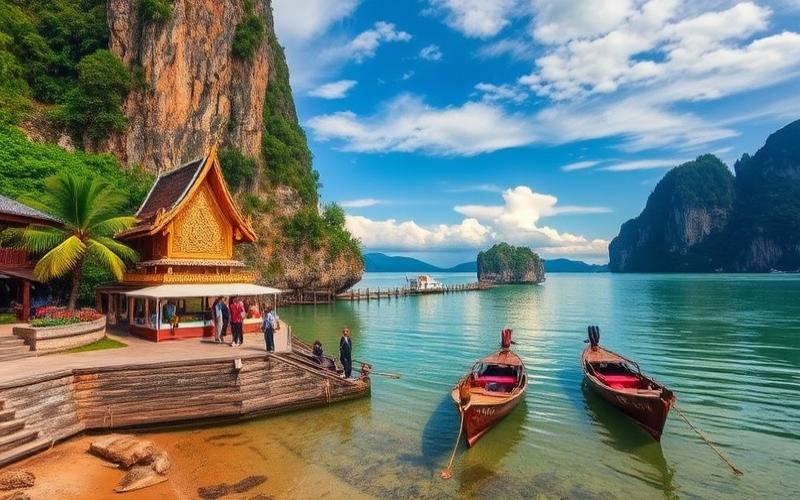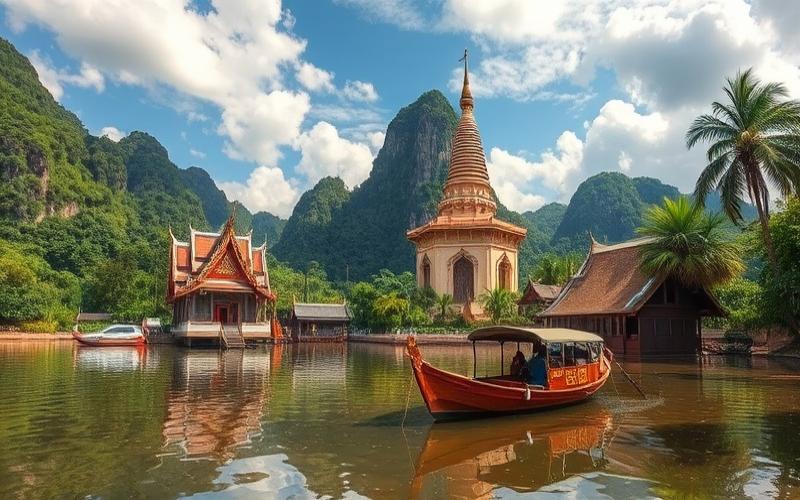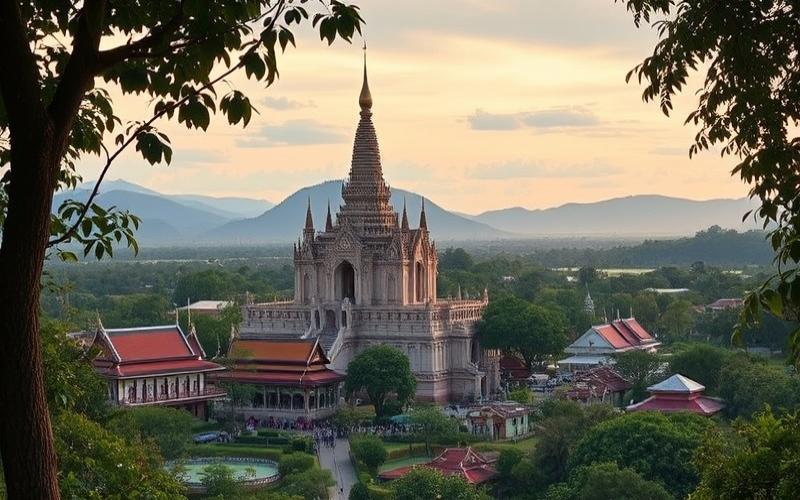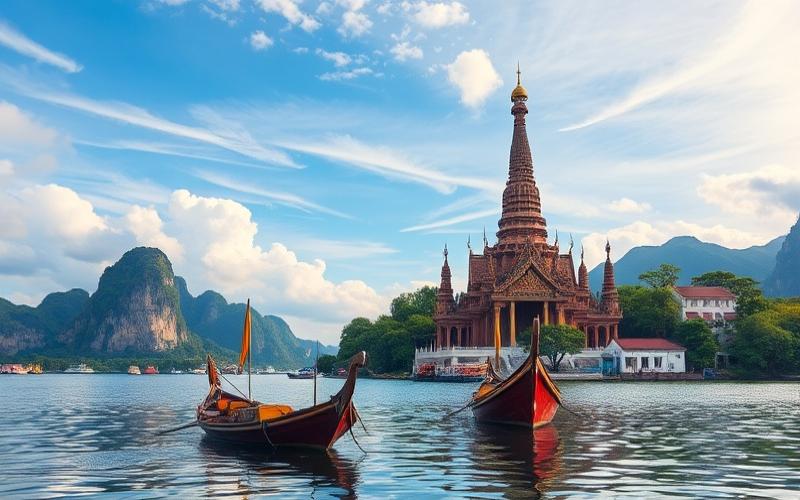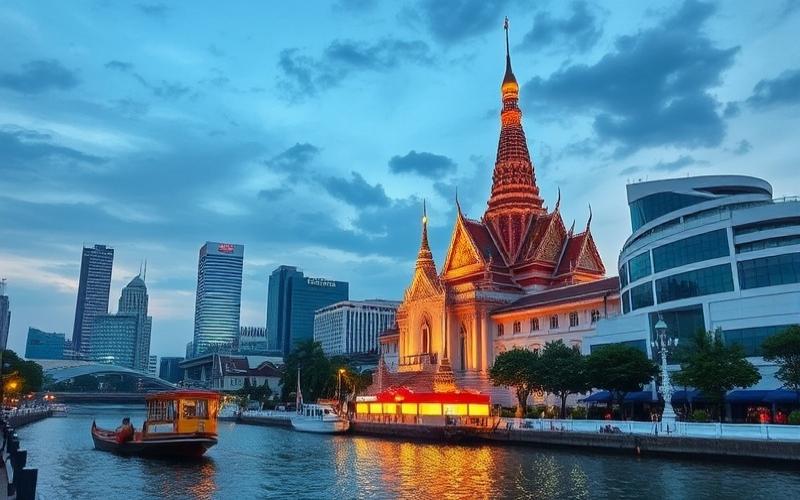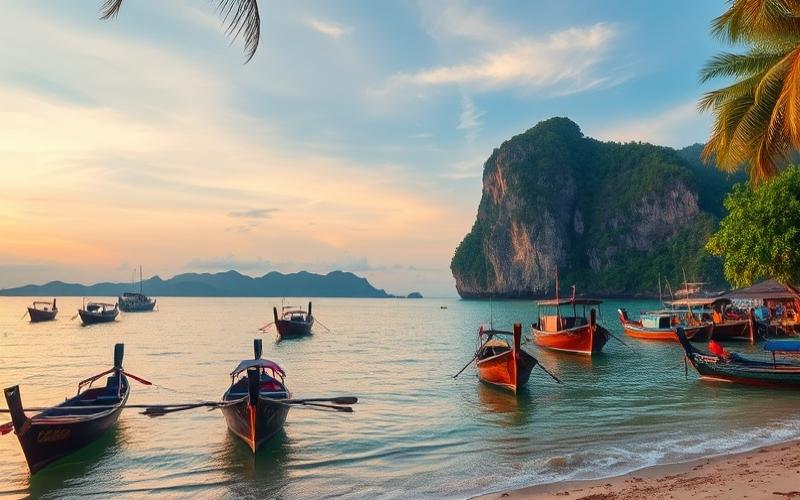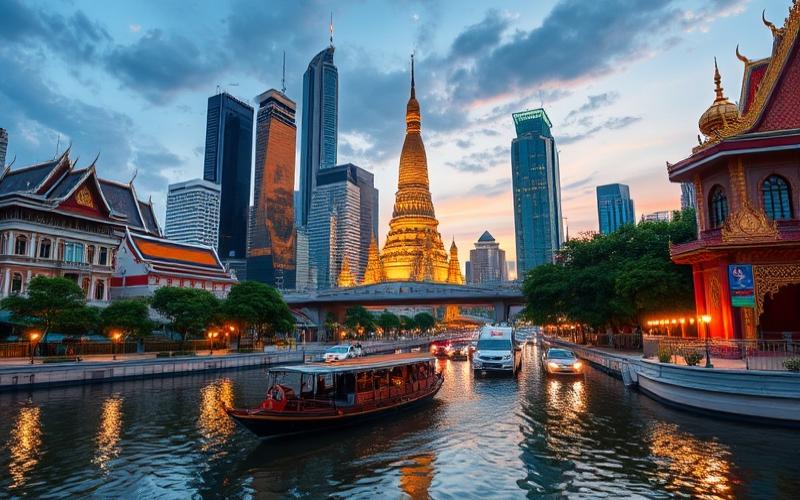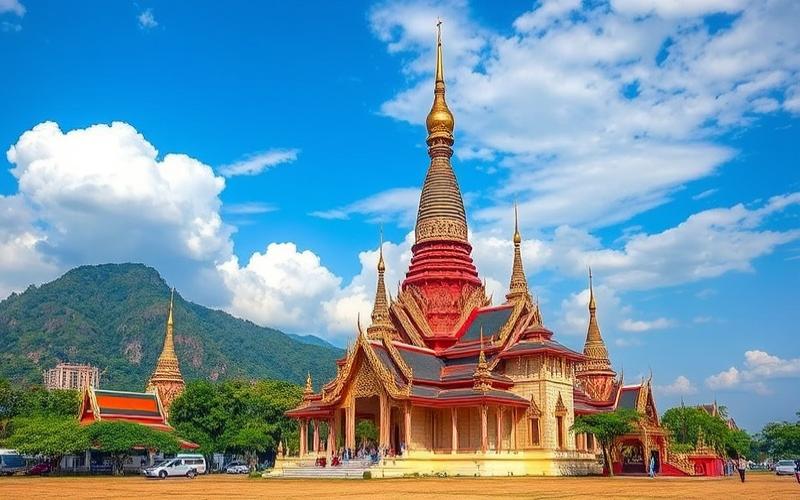
 Published on and written by Cyril Jarnias
Published on and written by Cyril Jarnias
Thailand, with its pristine sandy beaches, rich culture, and exquisite cuisine, attracts millions of tourists from around the world each year, making it an ideal destination for investing in hospitality. Buying a hotel in this tropical country may seem like a complex venture, but with proper preparation and an organized checklist, this process can become a highly lucrative opportunity.
Whether you’re a seasoned investor or a newcomer to the field, our article provides a comprehensive checklist that will guide you through the essential steps of purchasing a hotel in Thailand, highlighting the legal, financial, and cultural aspects to consider for a successful project.
Embark on this exotic adventure and discover how to pave your way to success in the Thai hotel industry!
Overview of the Hotel Market in Thailand
The Thai hotel industry is experiencing a sustained recovery in 2025, driven by a massive return of international tourists (over 35 million in 2024) and steady growth in domestic tourism. Forecasts project a national average occupancy rate around 75%, nearly returning to pre-pandemic levels. Average room rates are also increasing (+5% year-over-year), primarily in four-star hotels and above, which are investing in renovations and upscale repositioning.
Annual Growth of the Hotel Market (2025–2033)
| Year | Estimated Market Value (USD) | Annual Growth (%) |
|---|---|---|
| 2025 | 1.42 billion | 5.67 |
| Forecast* | – | Between 5% and 6% |
*Forecast based on expected CAGR between 2025 and 2033.
Dominant Segments
- Luxury hotels and serviced residences: growth above the national average.
- International chains (Accor, Marriott, IHG): strong competitive presence against local groups like Centara or Dusit.
- Rapid expansion of the premium segment with an upscale shift in international clientele.
Geographical Distribution & Key Tourist Areas
Hotel investments are primarily concentrated in the following tourist hubs:
| City | Estimated Share of National Transactions (%) | Strengths |
|---|---|---|
| Bangkok | ~60 | Regional business center; MICE* tourism |
| Phuket | ~20 | Upscale beaches; resort destination |
| Chiang Mai | ~10 | Culture/lifestyle; sustainable tourism |
*MICE: Meetings, Incentives, Conferences & Exhibitions
Other regions are now benefiting from increased promotion through the development of the “Green Destinations” label (16 labeled destinations in 2025), fostering the emergence of sustainable tourism off the beaten path.
Opportunities for Investors
- Strong global tourist appeal: strategic position enhanced by potential visa exemption extensions for key markets.
- Return to normal transactional dynamics after the exceptional peak observed in 2024.
- Growing demand for upscale experiences (wellness/spa/gastronomy/events).
- Active promotion by the state through major sports/cultural events (“Amazing Thailand Grand Tourism & Sports Year”).
Main Challenges
- Vulnerability to global economic uncertainties and tourist seasonality.
- Gradual strengthening of environmental/local regulatory requirements aimed at promoting sustainable development.
- Heightened competitive pressure between powerful international chains and established local players.
- Need for cultural adaptation in response to the increasing diversity of Asian/Western clientele.
Recent Examples of Major Transactions
Non-exhaustive list:
- Hyatt Regency Bangkok Sukhumvit: historic record transaction completed in late 2024 (~THB22 billion).
On average, the unit transaction size reaches THB1.8 billion (~USD53 million), an increase of +80% compared to the previous ten-year average. Approximately USD385 million will be invested in the Thai hotel sector in 2025, according to recent projections.
Post-Pandemic Impact on Tourist Demand
Demand is shifting towards:
- Longer stays from certain key markets due to temporary or permanent visa exemption extensions;
- Increased search for “experiences,” combining localized wellness (spa/regional traditions), Michelin-starred gastronomy (>400 listed restaurants including Sorn – three stars), cultural sports/event phenomena;
- Strengthened interest in less saturated secondary destinations, promoting better geographical distribution of tourist flow;
- Gradual but steady rise of domestic travelers due to continuously strengthening local purchasing power.
The post-Covid context is thus accelerating two structural trends:
- Strategic refocusing on premium international clientele,
- Growing integration of sustainable/environmental values into all sector decision-making layers.
Good to Know:
The hotel market in Thailand is showing a dynamic post-pandemic recovery with a growing occupancy rate, often reaching 70% in key areas like Bangkok, Phuket, and Chiang Mai. Dominant market segments include luxury hotels and resort complexes meeting the increased demand for upscale experiences. The rise in regional tourism is driving annual growth, while investors must navigate a complex regulatory environment and be aware of potential political fluctuations. Recently, notable transactions, such as hotel acquisitions by foreign investors in Bangkok, illustrate the market’s persistent appeal. However, challenges include the need to comply with local standards and adapt to Asian travelers’ cultural preferences, reinforcing the importance of a well-informed strategy to leverage the many opportunities in this rapidly transforming sector.
Guide to Acquiring a Hotel in Thailand
Key Steps to Acquire a Hotel in Thailand
- Development of a detailed business plan (feasibility study, local market analysis, financial projections).
- Research and selection of hotels based on specific criteria: location, size, historical profitability.
- Engagement of a specialized lawyer to secure the transaction and verify legal compliance.
- Thorough due diligence: verification of property titles, existing licenses, condition of facilities, and ongoing contracts.
- Price and terms negotiation with the seller; signing of a reservation agreement with deposit into an escrow account.
- Finalization of the acquisition after complete validation (required documents: land title, building/hotel operation permit).
Legal and Administrative Considerations Specific to Thailand
- Foreigners cannot directly own land; acquisition through a majority Thai corporate structure or long-term leasehold.
- Mandatory license acquisition:
- Hotel license specific to the number of rooms and services offered
- Restaurant license if a restaurant is present
- Alcohol/tobacco license if these products are sold
- Other permits depending on ancillary activities (seminars/entertainment)
| Hotel Type | One-Time License Fee | Annual Fee Per Room |
| ≤50 rooms | 10,000 THB | 80 THB |
| With restaurant | 20,000 THB | 80 THB |
| Restaurant + seminar | 30,000 THB | 80 THB |
| Dining + entertainment | up to 40,000 THB | 80 THB |
The process typically takes about six months.
Financial Aspects to Anticipate
Financing
- Significant personal contribution required; limited access to bank credit for non-residents. Local partnership often essential.
Operational Costs
- Local staff salaries (+ social charges)
- Regular maintenance of tropical infrastructure
- Fixed charges: electricity/air conditioning, water
- Digital/local marketing
Profitability Forecasts
Concrete example:
| Item | Estimated Monthly Amount |
| Accommodation revenue | variable by season |
| Payroll expenses | from ~12,000–20,000 THB/person |
| Energy & maintenance |
Adjust forecasts based on local average occupancy rate (~60–75% outside peak season), regional competition.
Cultural Differences & Expectations of Local Employees
- Pronounced hierarchical respect — prioritize clear but respectful communication.
- Strong expectations regarding contract stability & social benefits.
- Importance placed on collective events (local/religious holidays).
- Multicultural management: adapt Western methods to a local participatory approach. Train expatriate managers in Thai culture.
Concrete examples:
- Regularly organize informal meetings around a traditional meal.
- Value seniority with appropriate rewards during national holidays.
Practical Tips for Adapting the Tourist Offer
- Offer both Asian AND continental breakfasts — meet diverse expectations.
- Facilitate bookings via international mobile platforms (Booking.com/Agoda) AND local ones.
- Integrate typically Thai excursions into the offer: floating markets, local temples…
- Adapt decor/rooms: “boutique hotel” style blending international modernity & authentic local touches.
Summary Table – Hotel Market Trends
| Key Trend | Concrete Example |
| Eco-tourism | Use of local/organic products, waste awareness |
| Immersive Experience | Thai cooking classes/guided outings. |
| Digitalization | (Automatic check-in/mobile app). |
Key takeaway: focus on personalized service while respecting local traditions to retain both international and domestic clientele.
Good to Know:
To successfully acquire a hotel in Thailand, start by carefully researching available establishments and assessing their potential through rigorous due diligence, verifying the property’s condition, finances, and reputation. Familiarize yourself with local laws, including foreign ownership limitations, by opting for legal structures such as a joint venture with a Thai partner. Ensure you obtain all necessary licenses, like the business permit and hotel certificate. Financially, develop a plan including funding, operational costs, and a realistic return on investment. Consider the local cultural richness: adopt management that respects cultural differences while integrating Western service standards. Adapt your services to tourist expectations, focusing on wellness offerings or Thai cultural experiences, which are highly sought after currently. Also, consider training your team to provide attentive and authentic service to maximize customer satisfaction.
Key Elements for Hotel Due Diligence in Thailand
Foreign Ownership Restrictions
- In Thailand, foreigners generally cannot directly own land. They can, however, hold shares in a Thai company that owns the land, subject to compliance with local foreign ownership legislation.
- It is crucial to verify the type of land title, ownership structure, existence of mortgages, leases, or other registered encumbrances.
- Consultation with a local lawyer is highly recommended to secure the transaction and avoid non-compliant setups.
License and Permit Requirements
- Obtaining a hotel license is mandatory to operate a hotel in Thailand. It must first be ensured that the building permit authorizes hotel activity.
- The license must be renewed every 5 years and only a Thai director, with the required experience or training, can sign the application.
- In case of a purchase, the license must be transferred to the new owner.
- Additional requirements exist for projects benefiting from Board of Investment (BOI) advantages, such as minimum room count and minimum investment per room.
Comprehensive Financial Analysis
It is essential to examine in detail the historical revenues and expenses of the target hotel: turnover, occupancy rate, ancillary revenues, operating expenses, potential debts.
The analysis should cover several years to identify trends, seasonality, and hidden financial risks.
| Financial Element | Points to Verify |
|---|---|
| Revenues | 3-5 year history, by segment |
| Expenses | Detail of fixed and variable charges |
| Operating Result | EBITDA, net margin |
| Financial Commitments | Debts, guarantees, ongoing contracts |
Review of Operational Aspects
- Evaluate online reputation (TripAdvisor, Booking, Google ratings).
- Analyze customer reviews to detect operational strengths and weaknesses.
- Examine employment contracts, staff structure, and any potential labor disputes.
Infrastructure and Equipment Audit
- Technical inspection of buildings, rooms, common areas, pools, technical equipment (air conditioning, elevators, kitchens).
- Verification of compliance with safety, hygiene, and accessibility standards.
Location Evaluation
- Accessibility: roads, transport, signage.
- Proximity to major tourist attractions, beaches, shopping centers, restaurants.
- Future development potential of the region: new infrastructure projects, evolution of tourist demand, natural risks.
| Criterion | Elements to Consider |
|---|---|
| Accessibility | Distance to airport/train stations, main roads |
| Environment | Neighborhood, noise, safety |
| Attractiveness | Tourist sites, local life |
| Future Development | Upcoming public/private projects |
Engagement of Local Professionals
- Hire a specialized lawyer for verification of titles, ownership structures, and contracts.
- Consult a local accountant to audit accounts and taxation.
- Engage a real estate consultant for market analysis and valuation.
- Appoint an engineer or inspection bureau for technical building audit.
Thorough due diligence conducted with the assistance of local professionals is the best guarantee to secure a hotel investment in Thailand and minimize legal, financial, and operational risks.
Good to Know:
To perform effective due diligence when purchasing a hotel in Thailand, it is essential to understand foreign ownership restrictions that limit direct ownership to 49%; therefore, consider using appropriate legal structures, such as a local company, to secure your investment. Ensure the establishment has all required licenses and permits, such as those for alcohol and fire safety, to avoid potential legal disputes. A detailed financial analysis of historical revenues and expenses will help assess profitability; also remember to check the hotel’s online reputation by scrutinizing customer reviews to detect recurring issues. An infrastructure audit is essential to evaluate the condition of equipment, and consider accessibility and proximity to tourist sites, as well as the region’s economic development potential. Collaborating with local lawyers and real estate consultants can greatly facilitate these complex steps, providing valuable expertise and knowledge of local laws and regulations.
Analysis of Tourism Statistics in Thailand
Current Tourism Trends in Thailand
| Indicator | 2019 (pre-pandemic) | 2024 | 2025 (January-April) |
| International Arrivals | 39.8 M | 35.5 M | ~11.2 M (as of April 20) |
| Annual Target | — | — | 37–40 M |
| Chinese Tourists | 11 M | ~6.7 M | Decrease of -30 % |
| Tourism Revenue | — | — | +7 % in Q1 /471 Bn THB |
- Visitor numbers remain dynamic but below expectations, with a post-pandemic recovery marked by overall stagnation and particular difficulties in the Chinese market.
- European and American markets are progressing while China is experiencing a historic drop in arrivals (-30% in the first months of the year), influenced by a difficult economic context and local security issues.
- The Thai government is lowering its forecasts for the year, now expecting between 37 and 40 million arrivals compared to nearly 40 million initially targeted.
Tourist Seasonality
- High season: November to March (dry climate, maximum international influx)
- Low season: May to October (rainy season)
Most Popular Regions
- Bangkok
- Phuket
- Pattaya
- Chiang Mai
- Krabi
Demographic Data & Main Source Markets
List of main source countries:
- China:
- Sharp decline in 2025 (~30% only of pre-Covid volume)
- Main cause of the overall downturn
- Europe:
- Continuous progression; France is the third European market after the UK and Germany
- North America:
- Steady recovery but volumes less significant than Asia or Europe
| Source Market | Estimated % Share Pre-Covid |
| China | ~28–30 |
| Europe | ~18–21 |
Asian tourists remain the majority, but their recent decline benefits European markets, which are recording relative growth. The average daily number of international visitors now peaks below 60,000, far from pre-crisis peaks.
Economic Impacts
- Contribution to national GDP: around 12 to 15% in recent years.
Revenue generated reaches 471 billion baht in Q1 (+7%) despite overall stagnation.
The annual target has been revised downward: 2,000 billion THB expected in tourism revenue compared to nearly 2,300 billion initially hoped for.
Evolution compared to previous years:
Despite a slight increase (+1.9%) early 2025 vs. early 2024, the sector remains below record levels (nearly –25% vs. pre-Covid).
Future Projections for the Tourism Sector
- Optimistic forecasts if rapid recovery on the Chinese side (>40M possible by end of 2025).
- Prudent scenario currently favored (~37M expected).
- The Bank of Thailand regularly adjusts its expectations in response to the Asian economic situation.
Government Initiatives
- Marketing campaigns targeting new premium segments (“high-value tourism”)
- Temporary easing/extension of visa exemptions for certain key countries
- Investments in major hotel/airport infrastructure
- Strengthened security measures to reassure international clientele
Structural Challenges
⚠️ Main challenges:
- Persistent dependence on the Chinese market;
- Pressure on natural resources in some islands/coastal regions;
- Need for more sustainable tourism in response to environmental issues;
- Increased management of overtourism during seasonal peaks;
- Vulnerability to regional geopolitical/economic uncertainties.
In summary:
Thai tourism is going through a transitional phase marked by an Asian downturn partially offset by a Western resurgence. The economic weight remains major but fragile; sustainability is becoming an unavoidable strategic axis in all recent sector projections.
Good to Know:
With over 39 million tourists in 2019, Thailand remains a leading destination, although the pandemic caused a decline in 2020 and 2021. Arrivals resumed in 2023, notably thanks to travelers from China, Europe, and North America. High season periods, from November to February, contrast with the low season, which is quieter and conducive to good deals. Popular regions include Bangkok, Phuket, and Chiang Mai, which attract a steady flow of visitors. Tourism contributes about 20% of Thailand’s GDP, with a noted increase in individual spending. Projections indicate stable growth with the diversification of tourist offerings and government campaigns boosting marketing and infrastructure, although sustainability challenges persist.
Disclaimer: The information provided on this website is for informational purposes only and does not constitute financial, legal, or professional advice. We encourage you to consult qualified experts before making any investment, real estate, or expatriation decisions. Although we strive to maintain up-to-date and accurate information, we do not guarantee the completeness, accuracy, or timeliness of the proposed content. As investment and expatriation involve risks, we disclaim any liability for potential losses or damages arising from the use of this site. Your use of this site confirms your acceptance of these terms and your understanding of the associated risks.


